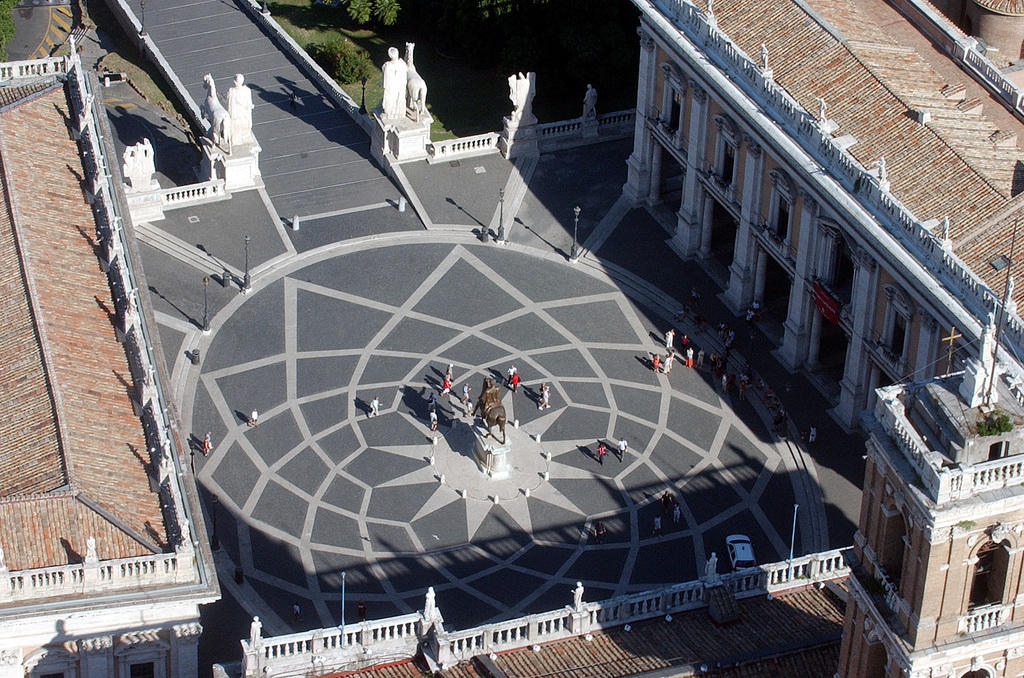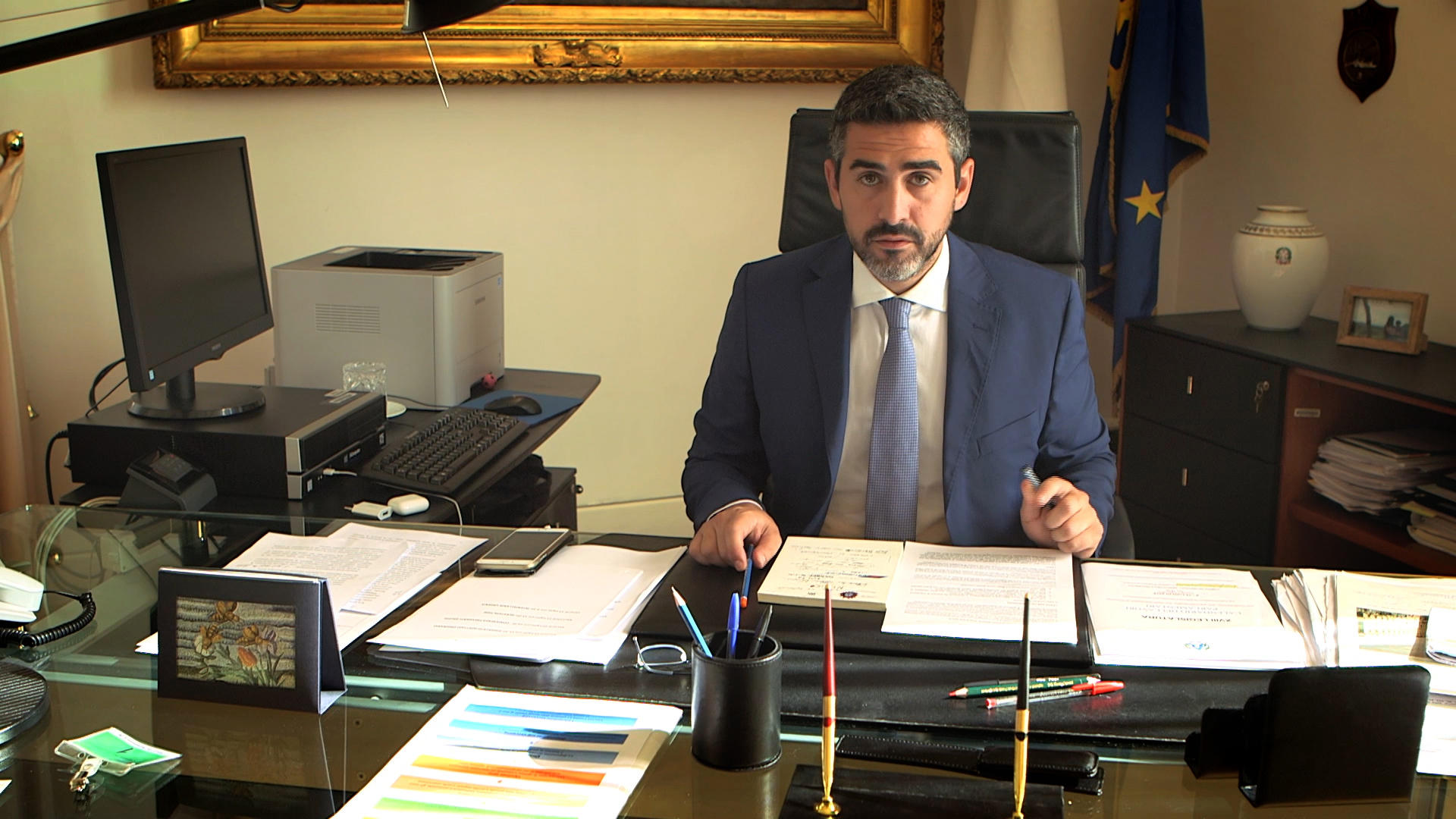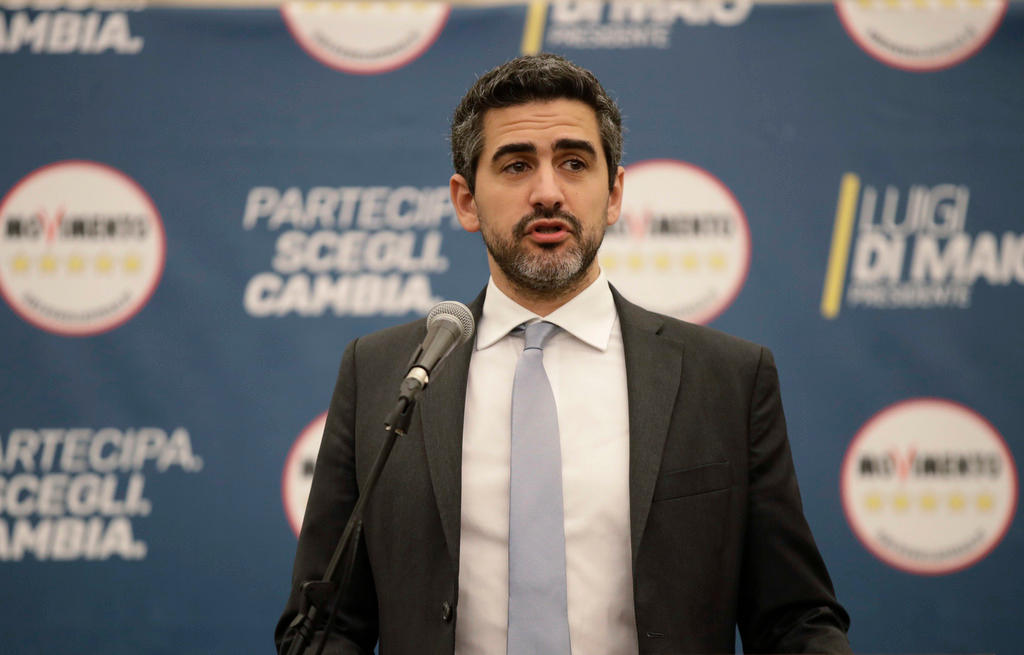World democracy summit set to kick off in Rome

Attacks on minorities, borders closing, the threat of withdrawal from the euro: Italy and its new administration face a multitude of challenges. It’s in this context that the seventh Global Forum on Modern Direct Democracy is set to begin on Wednesday in Rome.
In March 2018, the right wing nationalist Lega Party and Five Star Movement (M5S) came to power in Italy, ending the 70-year hegemony of the Christian Democrats and Socialists.
But the organisers of the 2018 so-called “WEF of democracy” (September 26-29)External link, Bruno Kaufmann and Joe Mathews, are not interested in domestic party politics in Italy: they want to contribute to strengthening new direct democratic approaches.
And there are promising signs in Italy: Riccardo Fraccaro of the M5S became the world’s first Minister for Direct Democracy this year; while in the capital, Rome, mayor Virginia Raggi has launched a process to draw up a new democratic city constitution.
‘An exciting place’
“It’s not only in Rome, but also in Turin and Naples that we see new forces emerging that are moving away from old ways in favour of more citizen participation and democracy,” says Kaufmann. “Italy is an exciting place in terms of democratic development.”
The summit, which will be attended by over 500 people from around 90 countries, will cast a critical eye over such developments.
Kaufmann doesn’t fear that the active support of mayor Raggi and her staff in organizing the event means that her party – the Five Star Movement, which features in the programme – could use the platform to disseminate its own political priorities.
“They have not put domestic or party politics to the forefront,” he says. “They are interested in the practice and the reform of direct democracy.”
The integrity of Minister for Direct Democracy Riccardo Fraccaro is also not widely doubted. He was appointed to the role after years of efforts to bring more decision-making power to the people of Trentino, his home region.

More
Engaging democracy stakeholders for better laws in Italy
For Virginia Raggi in Rome, the start has been rockier: soon after taking up the role, accusations of corruption were brought against her administration. However, Kaufmann maintains that the mayor is determined to preside over the city not by force, but with more democracy.
A promising sign, he says, is the first referendum to be held in Rome for 20 years: in November, citizens will vote on the privatisation of public transport in the city, a vote pushed not by city authorities but by the opposition.
Global outlook
This said, the organisers don’t want to only focus on local and national issues in Rome; they also want to highlight and foster democratic projects around the world.
“With Rome as a starting point, we want to build a global network of cities particularly active and innovative in the field of civic participation and direct democracy. At the end of the forum, a ‘Magna Carta’ will set out the principles, procedures and practices for this,” says Kaufmann.
The goal is to get this project of an “international league of democratic cities” off the ground in concrete form between now and the next global summit, to take place in 2019 in Taiwan.
“How can we make our cities more global and democratic at the same time?” is the theme of the 2018 Global Forum on Modern Direct DemocracyExternal link, attended by an estimated 400 participants from around the world in Rome between September 26-29.
In a series of plenary sessions and workshops, scientists, politicians, representatives of government administrations, NGOs and civil society will exchange ideas about boosting citizens’ participation in local politics and the role cities play in promoting democracy at a global level.
The forum is expected to adopt a declaration, a Magna Carta for the International League of Democratic Cities. The charter aims to boost cooperation, helping each other to increase democracy and efficiency.
swissinfo.ch is a platform in ten languages with a special dossier called #DearDemocracy dedicated to direct democracy issues.
As media partner of the Forum, swissinfo.ch journalists will report on the conference and write blog entries as well as posting contributions on Facebook and TwitterExternal link using the hashtag #globfor18.
Our readers are welcome to join in the discussion by sending their contributions and comments.
Translated from German by Domhnall O’Sullivan, swissinfo.ch

In compliance with the JTI standards
More: SWI swissinfo.ch certified by the Journalism Trust Initiative











You can find an overview of ongoing debates with our journalists here . Please join us!
If you want to start a conversation about a topic raised in this article or want to report factual errors, email us at english@swissinfo.ch.